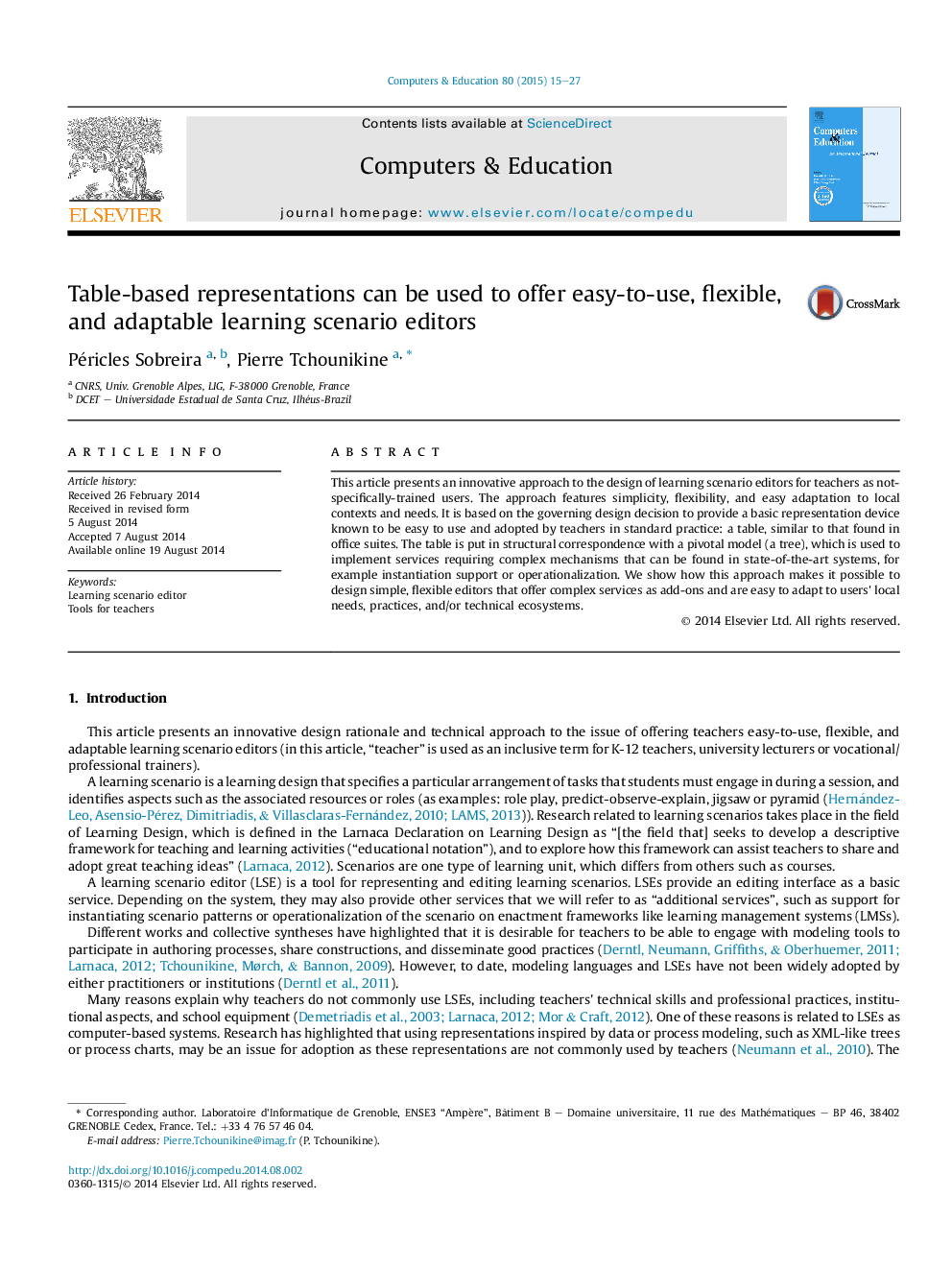| Article ID | Journal | Published Year | Pages | File Type |
|---|---|---|---|---|
| 6835093 | Computers & Education | 2015 | 13 Pages |
Abstract
This article presents an innovative approach to the design of learning scenario editors for teachers as not-specifically-trained users. The approach features simplicity, flexibility, and easy adaptation to local contexts and needs. It is based on the governing design decision to provide a basic representation device known to be easy to use and adopted by teachers in standard practice: a table, similar to that found in office suites. The table is put in structural correspondence with a pivotal model (a tree), which is used to implement services requiring complex mechanisms that can be found in state-of-the-art systems, for example instantiation support or operationalization. We show how this approach makes it possible to design simple, flexible editors that offer complex services as add-ons and are easy to adapt to users' local needs, practices, and/or technical ecosystems.
Related Topics
Social Sciences and Humanities
Social Sciences
Education
Authors
Péricles Sobreira, Pierre Tchounikine,
